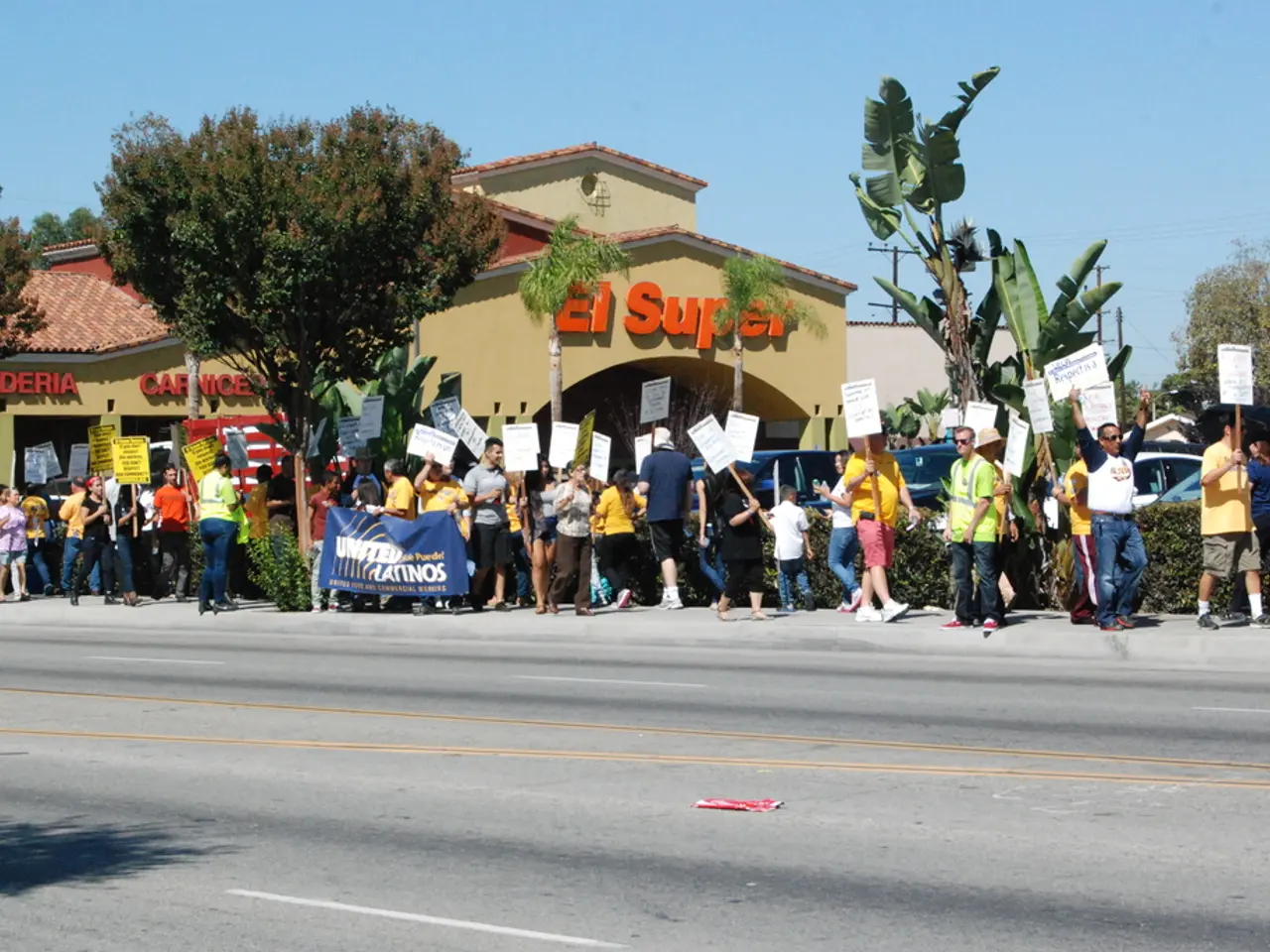California Governor Gavin Newsom advocates for a swift special election to draw up a novel congressional mapping in the state
California Seeks to Alter Congressional Map Amidst Partisan Redistricting Tensions
In a move that has sparked controversy and raised questions about partisan gerrymandering, Governor Gavin Newsom of California has called for a ballot measure that would allow the state to redraw its congressional map. This proposal, known as the "Election Rigging Response Act" or Proposition 50, could potentially shift the balance of power in the U.S. House of Representatives.
The move comes in response to Republican efforts in Texas to redraw their own congressional map, with the backing of former President Donald Trump. Texas Republicans aim to create more GOP-leaning seats, potentially gaining up to five additional House seats. Trump himself stated in an interview with CNBC this month that Republicans are "entitled to five more seats" in Texas.
In California, the usual once-a-decade redistricting process, conducted by an independent commission, would have occurred after the 2030 Census. However, under the proposed measure, the legislature—controlled by Democrats—would be able to redraw the map now, temporarily overriding the commission's role for three election cycles (2026, 2028, 2030). If voters reject the measure, current maps would remain in place.
The proposed measure, if approved, could shift roughly five seats from Republicans to Democrats, strengthening California’s Democratic representation. This change could affect the balance of power in the U.S. House of Representatives and reduce Republican representation from California.
The move has drawn opposition and lawsuits from Republicans, who argue this is retaliatory gerrymandering and a dangerous precedent. The measure passed the state Assembly and Senate largely along party lines.
In Texas, the Republican move prompted dozens of state House Democrats to flee the state to deny the GOP a quorum. Texas House Democratic Caucus Chair Gene Wu stated that two conditions must be met for lawmakers to return to the state: the current special session must end, and California Democrats must propose their own new congressional maps.
The California move is part of a nationwide response to the plan to redraw the congressional lines in Texas to strengthen the GOP's majority in the U.S. House. If approved, new maps could be enacted in time for the 2026 midterm elections.
In New York, a proposed constitutional amendment is needed to change the maps, assuring that, even if Democrats are successful, the maps wouldn't change until the 2028 elections at the earliest.
The escalating partisan tensions over district boundaries have led to concerns about executive overreach, as border patrol agents were reportedly present outside an event where Newsom and other Democratic leaders were speaking in California, leading to concerns about turning cities into police states. Newsom's press office took a new public relations tack, posting all-caps declarations on social media to mock Trump's style of messaging.
Newsom addressed Trump's assault on institutions and knowledge, stating, "Wake up, America. Wake up to what Donald Trump is doing." He framed California's mid-decade redistricting effort as a broader rebuke of Trump and his administration. Several other Democratic leaders in California appeared alongside Newsom, echoing his sentiments.
If the measure passes in California, it will mark an exceptional, politically charged deviation from the usual independent redistricting process, reflecting the escalating national partisan tensions over district boundaries.
Political tensions surrounding war-and-conflicts and policy-and-legislation have risen, as California's proposal to alter its congressional map amidst partisan redistricting tensions mirrors similar efforts in Texas. This move in politics could potentially shift the balance of power in the U.S. House of Representatives, with general news outlets reporting on the escalation of these tensions.








